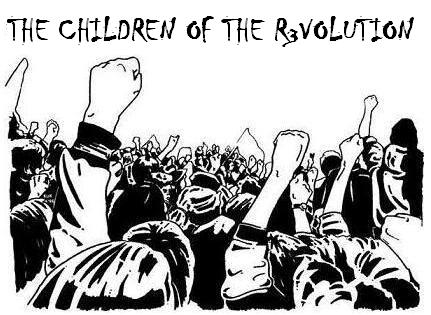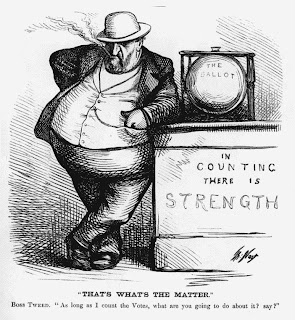BY HARIOLORI

As we watch our country relentlessly trudge towards the frail precipice above history's gaping maw, let us think of the future, and the natural progression of events through which we find ourselves inexorably drawn.
The emergence of national socialism:
As the steady homogenization of our federation of allied states has shown, nationalism is an enduring and undeniable after-effect of a successful revolution. To every challenge to the Republic there must be an answer, and that answer has been best delivered by the several states in union. Do not be fooled, however - the national pride that has been bestowed upon us by the sacrifices of our forefathers should never have trumped the independent nature of the states. Alas, it has. Rather than standing united against a dangerous world as a proud alliance of myriad views, Americans have been hoodwinked into believing that nationalism is at its best when the nation is mobilized for the support of our domestic welfare, rather than in response to external threats. This new brand of nationalism may owe some of its popularity to backlash against the recent Republican abuses of proper nationalism (vis-a-vis the national response to 9/11), but its roots can be traced to the very roots of socialism. No socialist regime has taken hold absent a strong nationalist sentiment. Well now we've already had our election, the die is cast. How we react when led across the Rubicon to slay (hopefully only figuratively) our countrymen will be a test of our national character far greater than any that Islamic fascism could hope to pose.
The collapse of private enterprise:
Already the media has shown us the door, and many have happily flocked through it. Emblazoned above the gateway reads the sign: Capitalism Is Dead. While the Commerce Clause has yet to be invoked successfully in a way that hammers the final nail in the coffin of private enterprise, be certain that there are those in the new administration who, for whatever perverse reason, are anticipating eagerly that this financial crisis will culminate in a new New Deal. The federal government will be granted constitutionally-protected powers under the Clause that will permit it to act as primary lender and overseer for every business large or small. Not only will taxes and wages be regulated, but every business will be required to submit its books for federal inspection and approval, and those businesses deemed unfit will either be closed by force, or placed under direct federal stewardship - usually those that can plead that their closure will have an undue impact on interstate commerce, the local economy, national security, et cetera. For those who doubt that free enterprise and real opportunity are on the wane, remember that the jackboot of nationalist socialism is ever ready to help you join the huddled masses beyond the point of no return.
The triumph of secular morality: Already the international intellectual elite has inculcated our mass consciousness with the seeds of secular morality. In the foreseeable future it will be taken as accepted that the only morality of consequence is the morality of humanitarian equity. Perhaps more accurately described as the rape of justice, we can look forward to a new age of political correctness in which the policies of national socialism are accepted as the moral foundation of government, and shall be preserved as an unassailable standard of virtue. Already this is happening, but the manipulation (again) of the constitution will see epic infringements of first amendment protections to the extent that morality can only be discussed in terms of, or at least giving equal time to, the government-sanctioned secular morality of wealth redistribution and the enforcement of classist polity. Equal treatment under the law will no longer be the standard of justice. It will be replaced with the guarantee of equality by force of law – a far more sinister definition, but one already creeping into acceptance among the American people, whether they realize it or not.
I leave you with the following quote from some relevant source material:
I
"Socialism means: 'The common good before the individual good.'
I
Socialism means: 'Think not of yourself, but of the whole, of the people and the state.'
I
Socialism means: 'Not the same for everyone, but to each his own.'"
I
We have heard these phrases before, once in recent memory. The other time a bit longer ago. I would offer you some shred of hope, but in the words of Ben Franklin, “He that lives upon hope will die fasting.”
And yes, for those who are watching, the title is a play on Latin, not a typo.





















